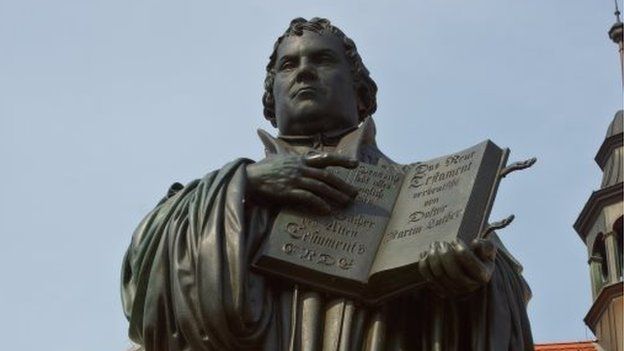Protestant reformer Martin Luther's 16th Century notes found
- Published

A first edition of one of the most important works of the man who inspired the Protestant Reformation has been discovered in a library in France.
The publication by German theologian Martin Luther, called On the Freedom of a Christian, dates back to 1520.
This was a year before he was excommunicated by the Pope for criticising the Catholic Church.
It includes around 50 notes written in red by Luther himself, indicating changes he wanted for a second edition.
The American who made the discovery, James Hirsten, said it gave an important insight into Luther's thinking at the time.
The annotated edition was found in The Humanist Library in Selestat, in the north-east of France.
Martin Luther launched the Reformation in Germany five centuries ago in response to what he said were excesses and abuses within the Church.
But his works, which also included Christian Liberty, To the Christian Nobility and On the Babylonian Captivity of the Church, turned him against many of the major teachings of the Catholic Church.
After his excommunication by Pope Leo X in January 1521, Luther was declared an outlaw and a heretic by the Roman emperor at that time, Charles V.
He later went on to publish a complete translation of the bible into German, which contributed to the spread and development of the German language.
- Published25 March 2012